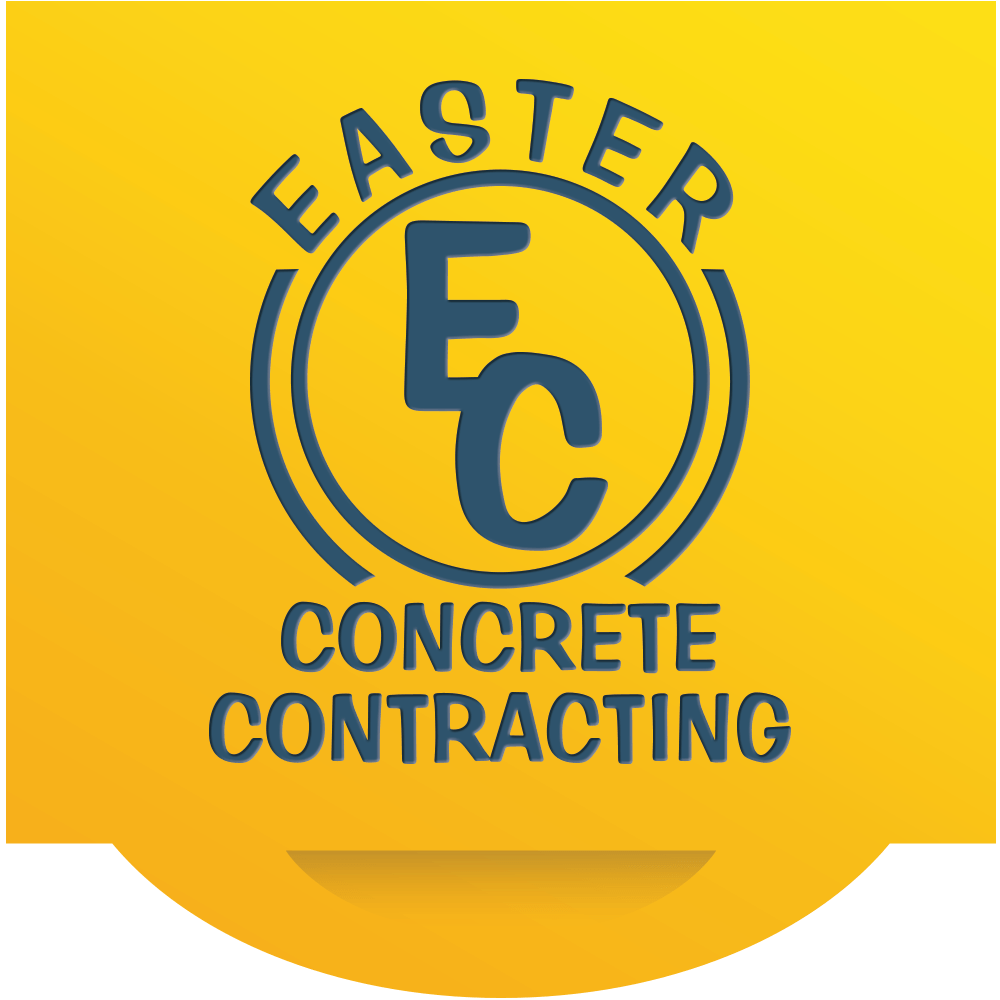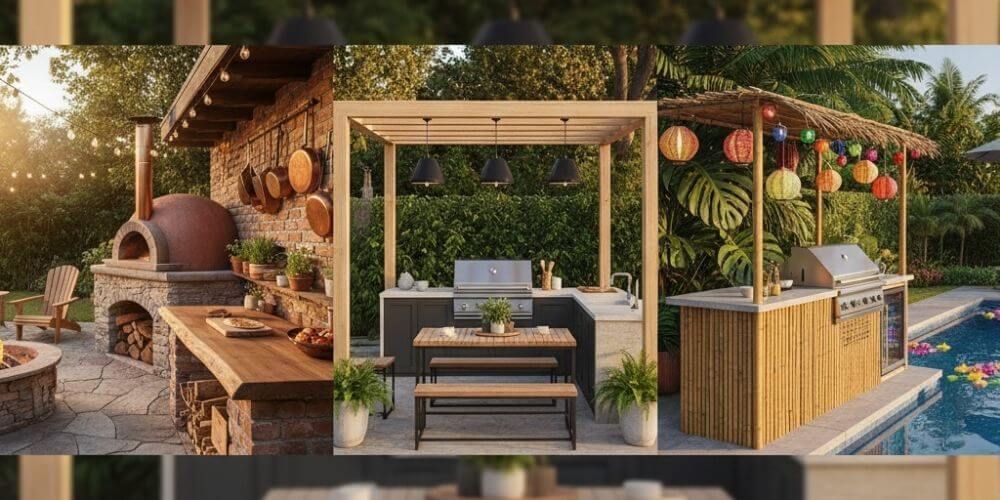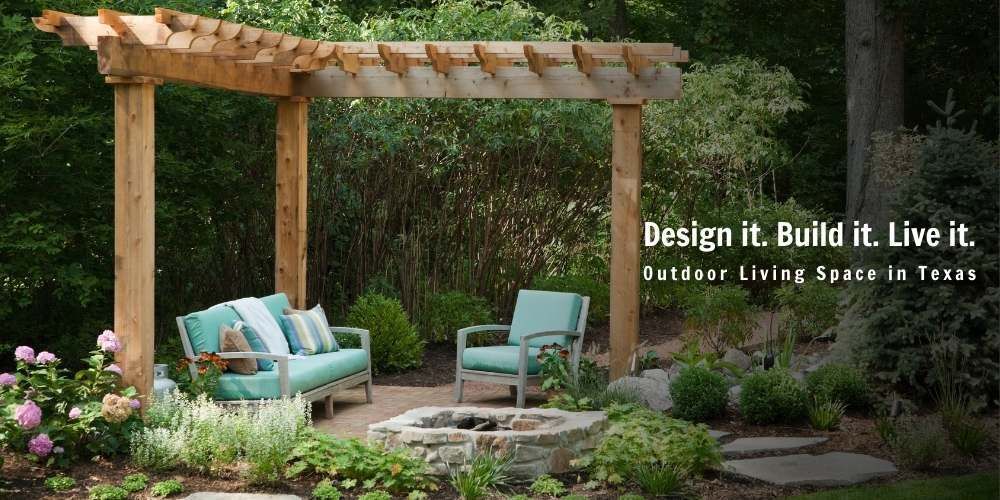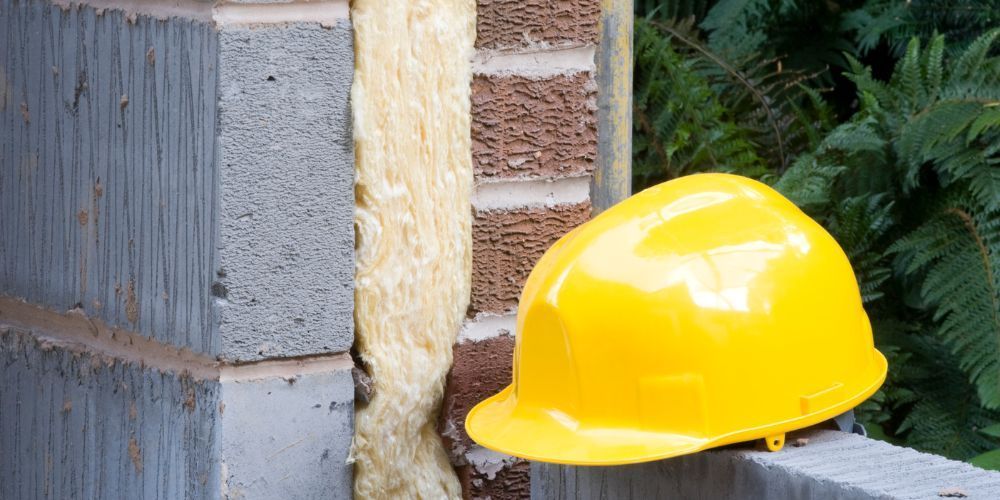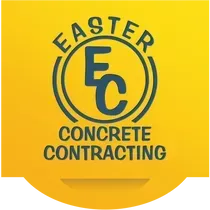11 Types of Gravel for Driveways: From Budget to Premium Options
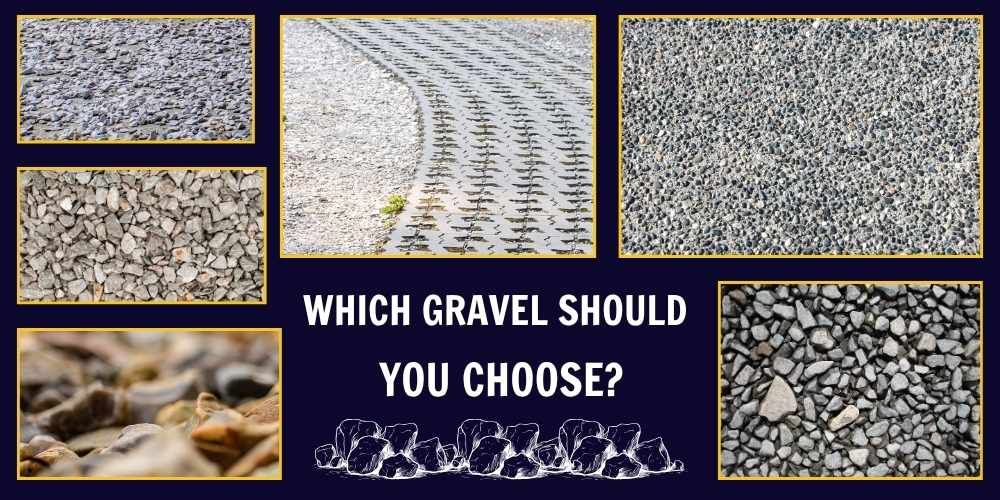
Best type of gravel for driveways
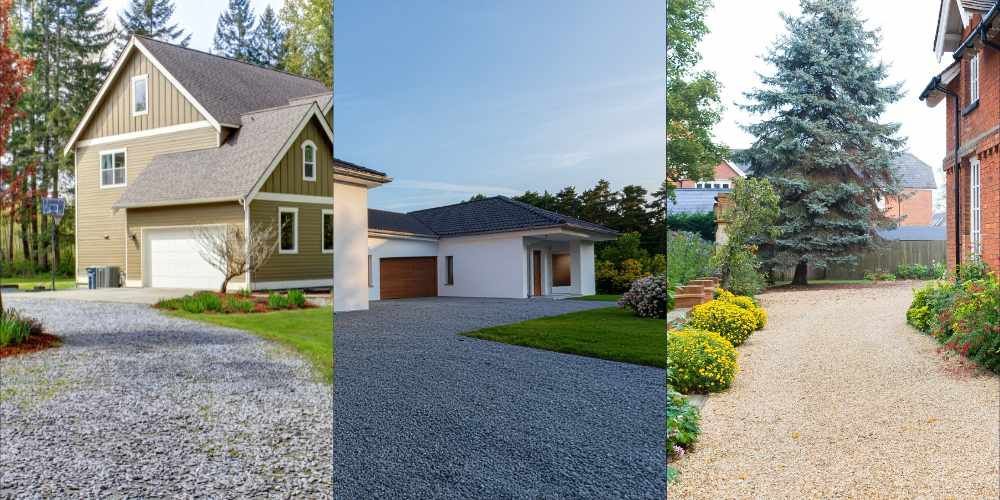
Selecting the best gravel for your driveway means considering climate, soil, traffic, and personal aesthetics. Different types of gravel driveways, like crushed stone, also called road mix or crusher run, remain one of the most reliable choices for heavy use due to their firm surface and resistance to shifting and rutting, especially in wet climates. Pea gravel, with its smooth and colorful appearance, adds decorative appeal but can shift easily, making it better suited for gently sloped drives. Other top performers include crushed bluestone and limestone, prized for durability and drainage, while black star gravel and marble chips provide an elevated look with lasting strength. Recycled materials like asphalt or concrete also offer solid performance and eco-friendly benefits, locking together over time. Whatever gravel you choose, focus on layering and compacting each section carefully to ensure longevity.

Caliche is a unique gravel option naturally formed in arid regions. It’s primarily composed of calcium carbonate, a natural cement that binds particles into a solid surface.
Key features of Caliche:
- Begins as fine dust to larger granules with excellent compaction.
- Hardens into a concrete-like surface within a year after proper installation.
- Binds well with clay, sand, or other gravel to create durable driveways.
- Typically weighs 2,200-2,700 lbs per cubic yard; one cubic yard covers about 100 sq ft at 2-3 inches depth.
- Needs at least 4 inches of thickness for strong support.
- Finer grades (called “base”) perform better than coarser types.
- Requires moisture during compaction for optimum hardening.
Pea Gravel pros and cons
Pros:
- Cost-effective and solid once cured.
- Erosion-resistant if properly installed.
- Blends naturally with earth tones.
Cons:
- Quality and lifespan vary significantly.
- Less durable than premium gravels.
- Susceptible to damage from heavy storms.
- May spread beyond driveway edges.
- Less visually appealing than decorative gravels.
Best uses of Pea Gravel:
Caliche is ideal for large, rural, and arid-area driveways where budget matters more than esthetics. Performs well for temporary or functional driveways if installed over a prepared base with good drainage. Higher-quality caliche offers better durability when installed by professionals.
2. Pea Gravel
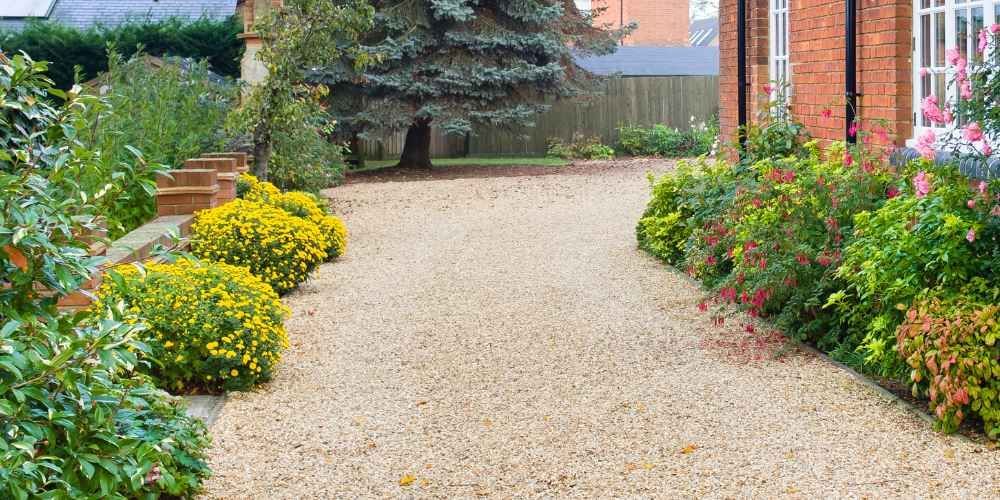
Pea gravel stands out in the world of driveway materials with its distinctive rounded appearance and smooth texture. Named for its resemblance to green peas, these small stones typically measure between 1/8 to 3/8 inch in diameter.
Pea Gravel key features
- Pea gravel is made of naturally rounded river rock, offering both aesthetic appeal and functionality.
- Unlike angular crushed stone, pea gravel consists of smooth pebbles in various natural colors such as gray, cream, tan, gold, black, and white.
- The stones vary in shape, with some being oval or fractured, adding visual interest.
- It features excellent drainage due to the small gaps between stones, which allow water to penetrate easily and prevent puddling and runoff.
- This makes pea gravel especially useful in areas with frequent rainfall.
- Installation involves spreading pea gravel over landscape fabric inside a wood frame.
- For driveways, a depth of 4-6 inches is recommended to ensure even distribution and a smooth ride.
Pea Gravel pros and cons
Pros:
- Good drainage reduces water pooling.
- Easy DIY installation.
- Comfortable surface underfoot.
- Comes in many colors.
Cons:
- Shifts and scatters without edging.
- Unstable for wheelchairs and strollers.
- Requires replenishing as stones settle.
- Difficult snow removal.
- Less stable for outdoor furniture.
Pea Gravel best use case
Pea gravel excels on decorative driveways with light traffic, especially on flat ground where drainage is needed. Pairing with stabilizers or permeable pavers enhances durability and maintains drainage benefits, balancing function and aesthetics effectively.
3. Crushed River Rock
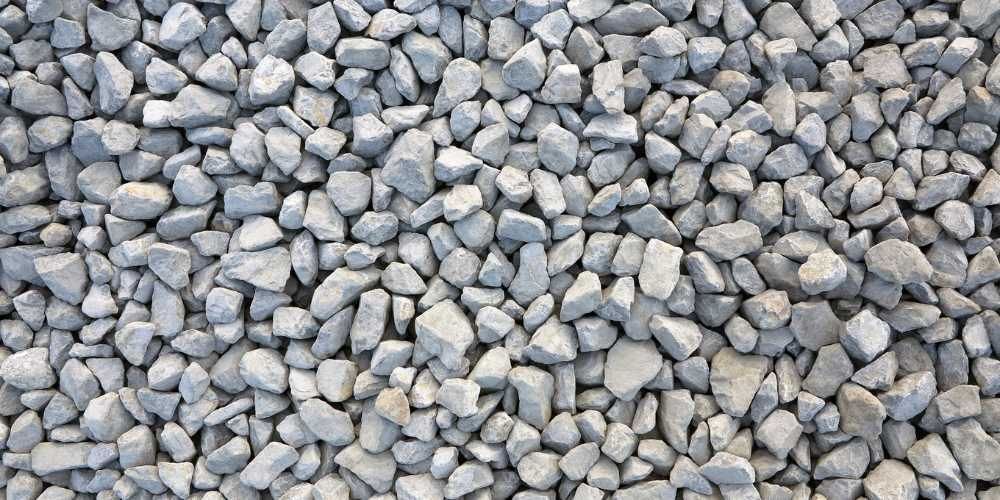
River rock represents one of the most visually appealing types of gravel for driveways available today. This naturally occurring material has been shaped over time by water movement, giving it distinct characteristics that set it apart from manufactured options.
Crushed River Rock key features
- Crushed river rock offers a wider variety of colors, sizes, and textures compared to standard quarry materials (see the generated image above).
- These stones retain their naturally smooth surfaces from years of water exposure after being mechanically crushed.
- This natural smoothness results in a more authentic appearance that blends well with surrounding landscapes.
- Positioned as a mid-range option, crushed river rock typically covers about 170 square feet at a 2-inch depth.
- The approximate cost is $55 per cubic yard.
Crushed River Rock pros and cons
Pros:
- Natural esthetic appeal with varied colors and textures.
- Provides excellent drainage properties.
- Creates a distinctive, decorative appearance.
- Readily available in most regions.
Cons:
- Tends to shift under vehicle weight, making it problematic for steep driveways or inclined areas.
- Can migrate over time, requiring regular maintenance.
- Than angular alternatives, smooth surfaces provide less traction.
- Lacks the interlocking capability of crushed stone products.
- Difficult to maintain in areas with heavy leaf litter or debris.
Crushed River Rock best use case
Crushed river rock works best on level driveways with little slope or curves, making it ideal for homeowners who value appearance over maximum stability. It’s most suited for flat driveways in dry climates. Maintenance includes periodic raking to keep the surface even and using landscape fabric underneath to prevent weeds . Edge materials help reduce gravel displacement along borders. Prices vary by location and season, so compare local suppliers. Proper installation includes clearing vegetation, applying fabric, and ensuring adequate gravel depth. For areas with heavy rain or snow, consider gravel types with better compaction and interlocking for greater stability.
4. Quarry Process (Crusher Run)
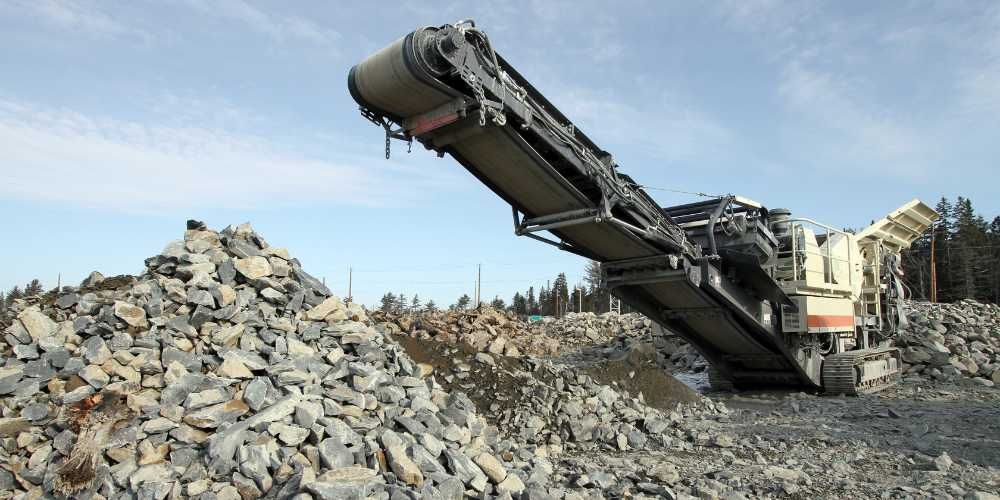
Quarry process, commonly known as crusher run, combines crushed stone with stone dust to create one of the most versatile types of gravel for driveways. This unique material appears in construction circles under various names, including QP, dense graded aggregates (DGA), shoulder stone, and DGABC.
Quarry Process key features
- Quarry process is made of 1" minus crushed stone mixed with stone dust, creating a blend with strong binding capabilities.
- Production starts by blasting raw stones from quarries, which are crushed and combined with stone dust.
- The stone dust acts as a binder, holding larger stones together for a durable material.
- Quarry process weighs about 2,500 pounds per cubic yard.
- The material is graded to produce low void content and maximum weight when compacted.
- This results in a semi-solid surface ideal for vehicle traffic.
- Unlike other gravel types, quarry process compacts well, forming a hard, stable surface.
- Its unique combination ensures it binds tightly, making it great for high-traffic areas.
Quarry Process pros and cons
Pros:
- Budget-friendly option for driveway construction.
- Exceptional durability against weather and heavy use
- Creates a smooth, even surface for vehicles.
- Requires minimal maintenance over time, saving money long-term.
- Available in various colors for customization options.
Cons:
- Poor drainage qualities unless properly layered.
- Professional installation is often required for optimal results.
- Might require occasional resealing to maintain appearance.
- Can create a less decorative appearance than purely ornamental gravels.
- Sometimes develops potholes without proper base preparation.
Quarry Process best use case
Quarry process excels as a base material for driveways experiencing regular vehicle traffic. Among different gravel types, it performs exceptionally well for homeowners needing cost-effective solutions without sacrificing durability.
For installation, prepare by measuring your driveway area carefully to determine the required quantity. The material should be spread with equipment like a skid steer, then thoroughly compacted to create maximum stability. Proper compaction remains absolutely essential to achieve the material's full binding potential.
Maintenance typically involves occasional sweeping to remove debris and applying sealant every few years for protection. Prompt repairs of any cracks or holes prevent further damage and ensure longevity.
5. Decomposed Granite
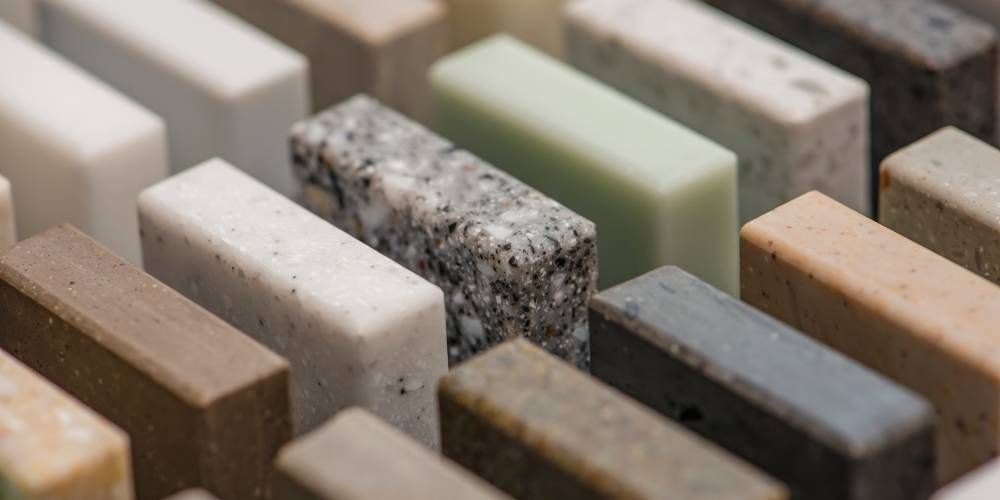
Decomposed granite results from the natural weathering of granite rock, creating a material that ranges from fine dust to small granular pieces. Indeed, this versatile type of gravel for driveways sometimes resembles sand when broken down into its smallest form.
Decomposed Granite key features
- Decomposed granite is made of granite aggregates typically 1/4 inch or smaller.
- It comes in a variety of colors, including yellow, brown, white, gray, gold, red, green, and dark blue (see the generated image above), offering great versatility for customizing driveways.
- Primarily available in three forms: natural (loose), stabilized (with binder), and resin-coated.
- Resin-coated decomposed granite provides a surface similar to asphalt, making it ideal for driveways.
- This material is notably more permeable than many alternatives, allowing excellent stormwater drainage and potentially eliminating the need for extra drainage systems (see the generated image above).
- Decomposed granite is an affordable choice, costing approximately $0.30 to $0.70 per square foot on average, making it budget-friendly compared to gravel, which ranges from $1.25 to $1.80 per square foot.
Decomposed Granite pros and cons
Pros:
- Exceptional drainage properties.
- Eco-friendly with minimal production requirements.
- Fast installation without need for heavy equipment.
- Visually blends with natural landscapes.
- Affordably priced for larger projects.
Cons:
- Requires proper stabilization to prevent spreading and rutting.
- Can become dusty and migrate beyond driveway boundaries.
- May stick to shoes and cause scratches on indoor flooring.
- Typically lasts only 7-10 years without restoration.
- Encourages weed growth if laid over plain grass without preparation.
Decomposed Granite best use case
Decomposed granite functions optimally in residential settings where both esthetics and drainage are priorities. For maximum longevity, installation with permeable pavers creates a stable surface that can last up to 60 years.
The ideal installation involves excavation to a depth of 6-12 inches, laying filter fabric to block weed growth, adding compacted gravel, and finally installing interlocking pavers filled with decomposed granite. This method prevents the material from spreading while maintaining its drainage benefits.
Ultimately, decomposed granite serves best in driveways where homeowners desire a natural-looking alternative to asphalt with superior drainage capabilities, particularly in flood-prone regions.
6. Crushed Bluestone
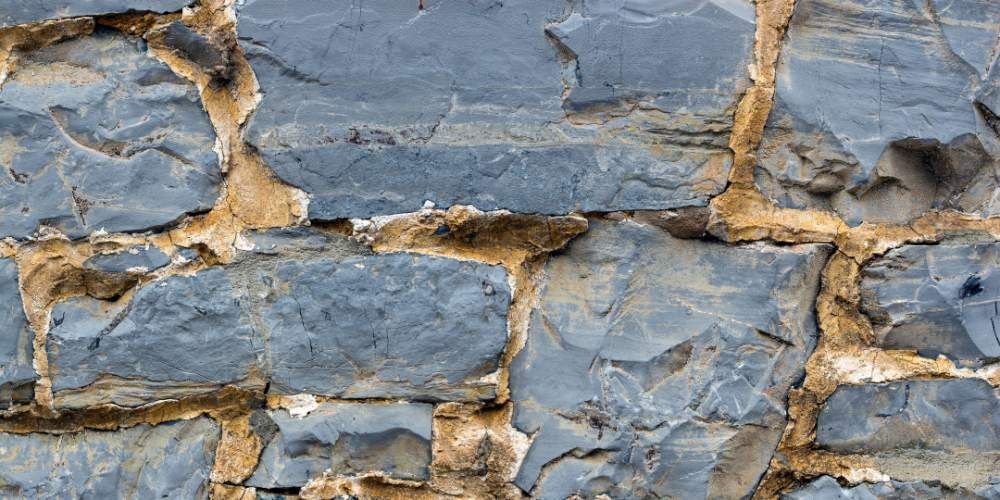
With its distinctive blue-gray coloration, crushed bluestone offers a premium esthetic option among types of gravel for driveways. This attractive material derives its vibrant blue hue from natural minerals present in the source rocks, primarily limestone, granite, or basalt.
Crushed Bluestone key features
- Crushed bluestone generally costs around $42 per ton, or between $30 and $65 per cubic yard.
- This decorative stone enhances visual appeal while offering practical benefits for driveways.
- It is carefully selected and processed to ensure uniform size and quality.
- Bluestone features excellent strength and durability, making it ideal for high-traffic areas.
Crushed Bluestone pros and cons
Pros:
- Unique blue coloration adds distinctive visual appeal to property exteriors.
- High durability withstands heavy traffic without significant deterioration.
- Excellent drainage properties prevent water accumulation and reduce puddle formation.
- Relatively low maintenance compared to other decorative options.
- Environmentally friendly natural material without harmful chemicals.
Cons:
- Higher cost than basic gravel options.
- May require occasional replenishment as stones settle.
- Color might fade slightly over time with exposure.
- Installation best performed by professionals for optimal results.
- Requires proper edging to prevent spreading beyond driveway boundaries.
Crushed Bluestone best use case
Crushed bluestone performs optimally in residential settings where esthetic considerations are paramount. Hence, it's ideal for front driveways where curb appeal matters most. Basically, properties seeking to create visual distinction benefit from its unique coloration and texture. The material works effectively in both rural and suburban environments, yet particularly complements traditional and contemporary architectural styles. For maximum longevity, installation over properly prepared base materials with adequate drainage considerations remains essential.
7. Crushed Limestone
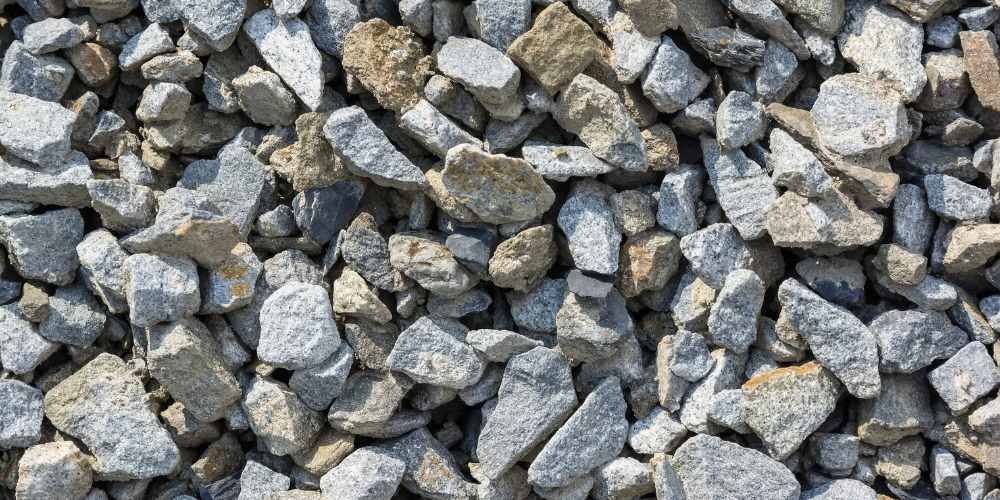
Formed from ancient marine sediments, crushed limestone ranks among the most versatile types of gravel for driveways available. This sedimentary rock primarily consists of calcium carbonate, giving it distinctive binding properties that separate it from other stone varieties.
Crushed Limestone key features
- Crushed limestone varies in size, including 3/4-inch (610), 1/2-inch (57), and 1/4-inch (#8), tailored for different applications.
- It’s a mid-range material costing roughly $30-$115 per cubic yard.
- The #57 grade, or driveway gravel, has angular edges for better compaction and drainage.
- Limestone’s lighter gray-tan color helps keep surfaces cooler in hot weather.
- Once compacted, it creates a durable, permeable surface that effectively manages water runoff, ideal for drainage and water management.
Crushed Limestone pros and cons
Pros:
- Superior drainage capabilities prevent water pooling.
- Exceptional durability against regular vehicle traffic.
- Straightforward installation process feasible for DIY enthusiasts.
- Natural appearance enhances property esthetics.
- Cost-effective compared to concrete or asphalt.
Cons:
- Vulnerable to freeze-thaw cycles, causing shifting and unevenness.
- Requires periodic maintenance and occasional replenishing.
- Less strength than concrete or asphalt for heavy loads.
- Potentially harsh on vehicle tires if improperly compacted.
- Challenging snow removal that can disturb the surface.
Crushed Limestone best use case
8. Marble Chips
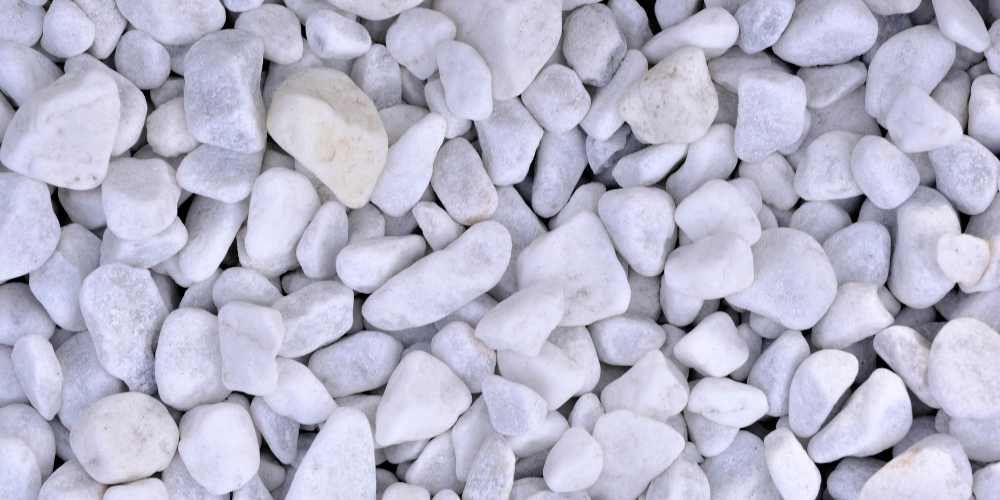
Among premium types of gravel for driveways, marble chips represent a luxury option offering unmatched elegance and distinctive properties. These small pieces of actual marble create sophisticated visual appeal for upscale properties.
Marble Chips key features
- Marble chips are the most expensive gravel option, costing between $180-$450 per cubic yard.
- Available in colors like white, gray, and tan.
- Reflect sunlight, creating a sparkling curb appeal.
- Reflective quality helps keep surfaces cooler in hot weather, ideal for warm regions like Florida and Arizona.
- Provide excellent drainage, preventing water pooling and runoff that can damage landscaping.
- Require a firm sub-base of compacted aggregate for proper installation, ensuring durability and longevity.
Marble Chips pros and cons
Pros:
- Stunning esthetic appeal with sophisticated look.
- Highly durable against vehicle weight and weather conditions.
- Excellent drainage properties.
- Natural cooling effect in hot climates.
- Available in various colors for design flexibility.
Cons:
- Highest cost among all gravel options.
- Requires regular maintenance and periodic replenishment.
- Light colors show dirt and debris easily.
- Can become dusty in dry conditions.
- Vulnerable to displacement from snow removal.
Marble Chips best use case
Marble chips perform optimally in upscale residential settings prior to considering their visual impact. Best suited for properties in warmer climates, they create statement driveways for homeowners with generous budgets. Regardless of their beauty, marble chips aren't recommended for areas with extreme temperature fluctuations or locations requiring frequent snow removal, as plowing easily displaces the material.
9. Black Star Gravel
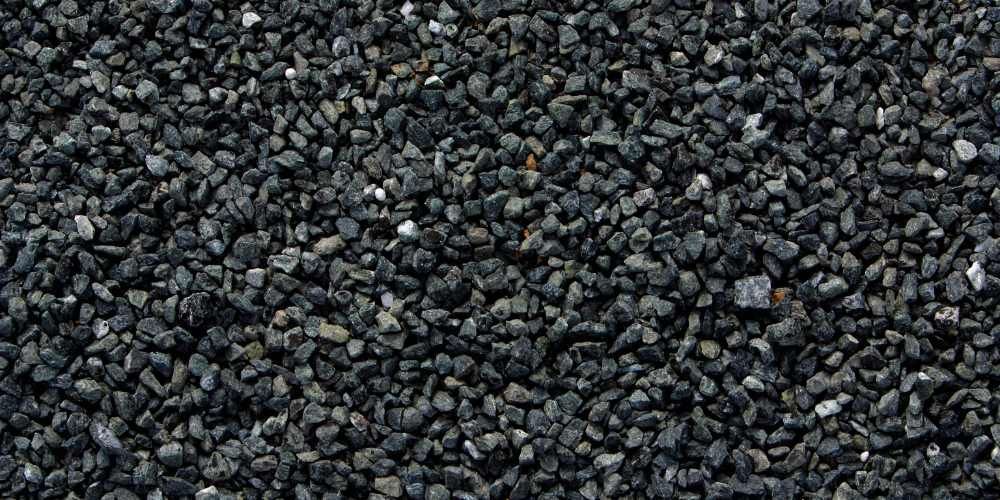
Black Star Gravel offers one of the most visually striking types of gravel for driveways on the market. Made from crushed basalt rock, this premium material provides both sophisticated esthetics and superior performance characteristics.
Black Star Gravel key features
Screened to a uniform 5/8-inch size, Black Star Gravel delivers excellent compaction thanks to its angular shape. This material appears dark gray when dry yet turns striking black when wet, creating a dramatic visual effect that enhances modern landscape designs. Since it's sourced from high-quality basalt, it provides exceptional stability and durability. Overall, its consistent size makes installation straightforward across various applications.
Black Star Gravel pros and cons
Pros:
- Superior drainage prevents water pooling during heavy storms.
- Remarkable compaction creates a stable surface that resists displacement.
- Low maintenance requirements compared to other driveway options.
- Enhances curb appeal with sophisticated dark coloration.
- Contrasts beautifully with surrounding greenery and architectural elements.
Cons:
- Compared to similar gravels, significantly higher cost ($190-$250 per cubic yard).
- Potentially creates excessive heat in scorching climates.
- Not suitable for children's play areas or barefoot traffic.
- May require professional installation for optimal results.
- Becomes displaced on very steep slopes.
Black Star Gravel best use case
Black Star Gravel performs exceptionally well in modern residential settings where esthetic appeal matters. Undeniably, it's ideal for creating sophisticated driveways, walkways, and decorative hardscapes. According to industry professionals, this material excels in areas with varying weather conditions.
10. Jersey Shore Gravel
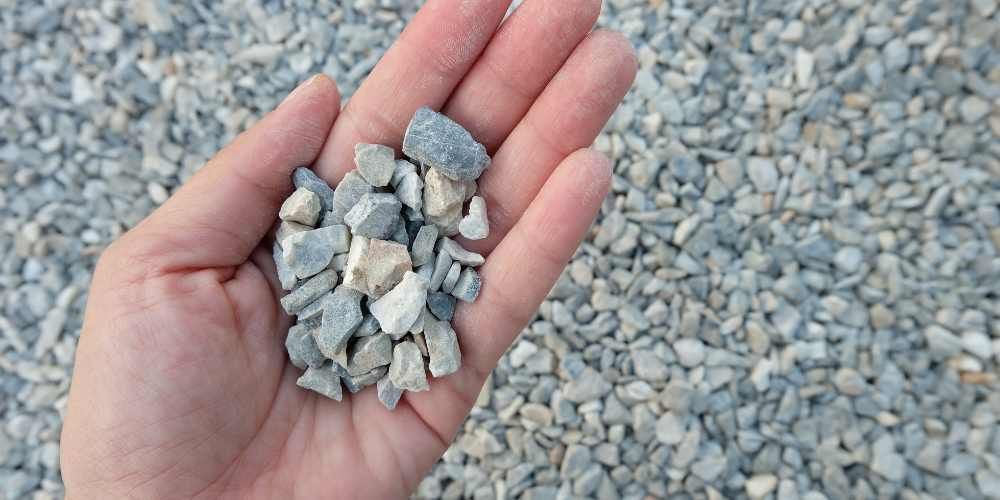
Named after its origin region, Jersey Shore gravel brings coastal charm to any property with its distinctive golden-yellow tones. This material's warm coloration serves as a unique option among popular types of gravel for driveways for homeowners seeking beach-inspired esthetics.
Jersey Shore Gravel key features
Jersey Shore gravel consists of small, smooth stones similar to pea gravel yet typically appears in a special blend of yellow, tan, white, and brown hues. Available in sizes ranging from 3/8 inch to 1 inch, this material creates a surface reminiscent of sun-bleached beaches. The warm browns and cool grays blend together to form a natural, inviting appearance. One remarkable quality is its ability to compact easily, forming a solid surface that effectively withstands freeze-thaw cycles.
Jersey Shore Gravel pros and cons
Pros:
- Creates a distinctive coastal esthetic with warm golden tones.
- Provides excellent drainage to prevent water accumulation.
- Forms a comfortable walking surface with smooth, rounded stones.
- Compacts well, offering good stability for vehicles.
- Reflects light beautifully in shaded areas.
Cons:
- Requires proper edging for containment like other smooth gravels.
- Lacks angular edges needed for traction on steep inclines.
- May need more frequent maintenance to maintain appearance.
- Similar spreading tendencies to pea gravel.
- Works primarily as a decorative top layer rather than base material.
Jersey Shore Gravel's best use case
Jersey Shore gravel performs optimally on flat or gently sloping terrain where its decorative qualities can shine. Naturally, it creates an ideal match for coastal properties seeking beach-inspired esthetics. As a top layer for driveways and walkways commonly used throughout New England and Mid-Atlantic states, this material brings instant warmth and brightness to exterior spaces.
11. Crushed Stone #411
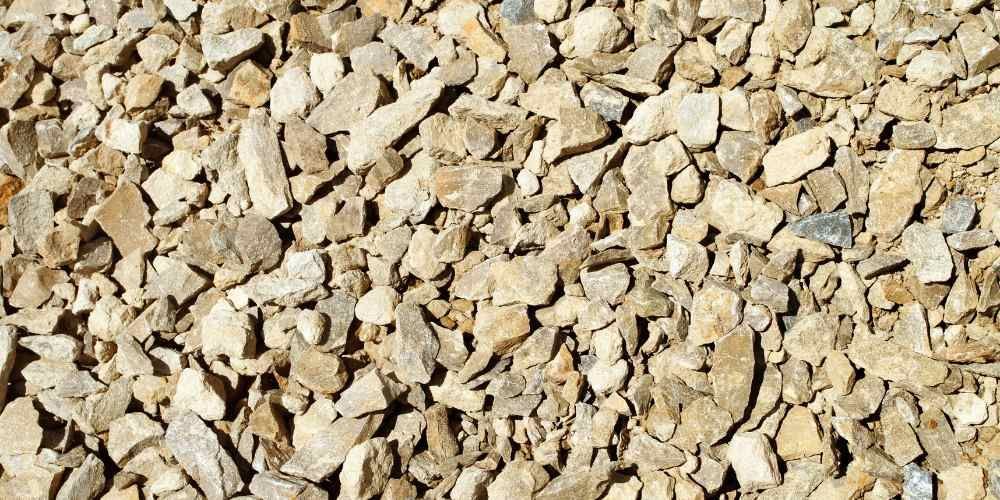
Combining strength with versatility, Crushed Stone #411 stands as an excellent foundation option for types of gravel for driveways. This material creates reliable bases that withstand significant weight and traffic.
Crushed Stone #411 key features
Primarily composed of ranging from 1" pieces down to fine dust particles, this material contains no other aggregates. The mixture combines #57 stone with #10 screenings and dust, creating an exceptional binding effect. Its angular shape plus dust content allow for superior compaction and leveling. Quantifiably speaking, a ton of #411 gravel equals approximately 0.69 cubic yards (18.5-18.7 cubic feet), covering roughly 56 square feet at a 4-inch depth.
Crushed Stone #411 pros and cons
Pros:
- Creates a strong foundation supporting heavy vehicles.
- Provides proper drainage even in challenging conditions.
- Packs down extremely well through compaction.
- Serves as an economical surface material.
- Performs excellently when confined in geocells.
Cons:
- Requires frequent maintenance when used alone.
- May need professional installation for optimal results
- Performs best as a base layer rather than surface material
- Less visually appealing than decorative gravel options
Crushed Stone #411 best use case
This material excels as a primary base for pavers, walls, concrete, and pavement. Ideally, it serves as a base layer for driveways because it creates a strong foundation. For maximum effectiveness, apply at 4-6" minimum depth. Throughout regions experiencing heavy rainfall or freeze-thaw cycles, this material ensures superior drainage.
ConclusioNN
Choosing the right gravel for your driveway is key to balancing aesthetics and functionality. Each type of gravel driveway offers unique benefits based on your needs, climate, and use. Wet areas benefit from gravel with good drainage, like crushed limestone, while heavy traffic zones require durable, compactable stones like crushed stone or quarry process. Visual appeal and stability must be balanced—for example, pea gravel looks great but may shift on slopes. Proper installation, including a well-prepared base and adequate compaction, is just as important as material choice. For professional results, trust Easter Concrete to install your driveway, ensuring it performs well and lasts longer.
FAQs
Q1. What is the most cost-effective gravel for driveways?
Quarry process (crusher run) is one of the most budget-friendly options, typically costing $20-$25 per cubic yard. It compacts well and creates a stable surface, making it ideal for driveways with regular vehicle traffic.
Q2. Which gravel type offers the best drainage for wet climates?
Crushed limestone is an excellent choice for areas with frequent rainfall. It provides superior drainage capabilities, preventing water pooling and runoff issues. Its light color also helps keep surfaces cooler in hot weather.
Q3. What gravel option is best for creating a luxurious look?
Marble chips offer unmatched elegance for upscale properties. While they are the most expensive option ($180-$450 per cubic yard), they provide a stunning, sparkling effect that enhances curb appeal and creates a sophisticated look.
Q4. Which gravel type is most environmentally friendly?
Recycled gravel mixes are the most eco-conscious choice. Made from crushed concrete, asphalt, and brick, they divert construction waste from landfills. These mixes are affordable (around $15 per cubic yard) and offer performance comparable to virgin aggregates.
Q5. What gravel option is best for steep driveways?
Angular stones that compact well, such as crushed stone #411 or quarry process, are ideal for steep driveways. These materials create a strong, stable surface that resists shifting and displacement, even on inclines.


